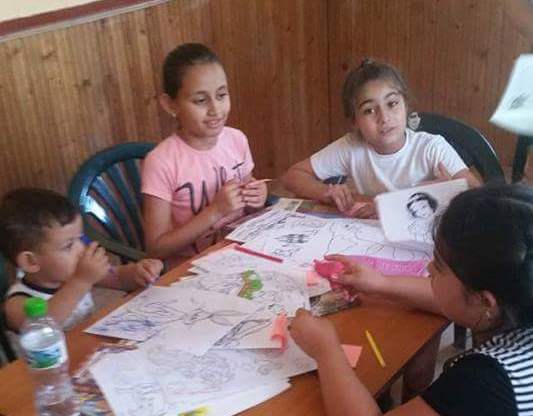Isperih Municipality Results! Monthly Fees have been cancelled for Nurseries and Kindergartens
The Isperih municipality has been participating in the ROMACT programme since 2015 and one of the first actions was to form a patrnership which includes the ROMACT programme team, the municipality administration and the Community Action Group (CAG). This partnership team was established to ensure that the voice of the Roma community is included in the municipality policy process and it is already yeilding positive results.
During an additional Isperih Municipal Council session on the 28 December 2017, the council considered the Mayor’s direction to discuss the matter of nursery and kindergarten accessibility. The meeting resulted in a unanimous vote to end monthly fees for nursery and kindergarten services to children in the municipality.
This amendment to Regulation No 11, which addresses all local fees and service charges for people living in the municipality of Isperih, removes all fees which parents and guardians were required to pay. The decision comes into force on the 1st January 2018 and will benefit the over 800 children currently attending the 14 kindergartens in the Isperih municipality.
It is hoped that these changes will improve the level of educational achievement in the municipality by ensuring that all children in the area begin their education from a young age through free access to kindergarten regardless of family financial circumstances. The cancellation of kindergarten and nursery fees is expected to ultimately ensure full attendance and equality of access to quality education.
While this policy will benefit all children, it is believed that one of the great benefits of the policy is that Roma young people, in particular, will improve their educational achievements by accessing education at young age.
As key partners and stakeholders in the local authority, the CAG identified very early on in the ROMACT programme that there was a need for Roma children to access education early in their lives by entering the education system early (at the age of 2 or 3) so that they could be better prepared for further education during their school age years.
The CAG highlighted that the main barrier to early education was the high fees to access nursery and kindergarten. They maintained that this obstacle impacted the children from the outset and meant that children from vulnerable families were marginalized. The CAG suggested that the fees be reduced to an amount that made early years education accessible or, in the best case, that the fees be totally abolished.
The Local Authorities recognised that this issue was certainly a problem that required addressing and they requested expert assistance from the ROMACT programme to assist them in the process of reviewing the issue. ROMACT appointed experts helped the Municipality review and analyze the funding of pre-school education in the area. The analysis clearly demonstrated that the costs of pre-school education was an impacting factor to the children’s low average monthly attendance. It was noted in the work that the municipality had allocated considerable municipal resources to accommodate 800 children, yet the average monthly attendance accounted for roughly 500 children. The result was clear, 300 children were falling outside of the provision.
In response to their findings the ROMACT experts created a plan to gradually reduce the pre-school fees over a three-year period. One of the key elements in the plan was to reduce the number of kindergarten facilities in order to maximize cost savings in maintenance and staffing.
The plan was developed into a formal project proposal and submitted to the Roma Education Fund (Budapest), unfortunately this bid was not successful. Regardless of this disappointing result, the Isperih municipality remained committed to implementing the plan in stages and allocated funding to cover the expenses of the proposed changes to ensure that early years education could be free for all municipality children between the ages of 3-6 years old. Ultimately this has resulted in the closure of 7 area kindergartens with an increase in staff for the remaining 14 childcare facilities.
Unlike previous years, when the municipality spent approximately 400 000 BGN for kindergarten activities, the maintenance budget for area kindergartens is now considerably reduced. The income deficit of 100,000 BGN due to the cancelled fees will be absorbed by the savings found in the reduced number of facilities and through income generation through rental of property owned by the kindergartens.
The highly professional staff in the municipal childcare facilities are another key factor in the municipal plan to ensure access to quality early childhood education. To support existing skilled educational faculty, ROMACT capacity building training and support has been offered an a large number took part in the ROMACT training which was centred on intercultural communication during the period between October and December 2017.

